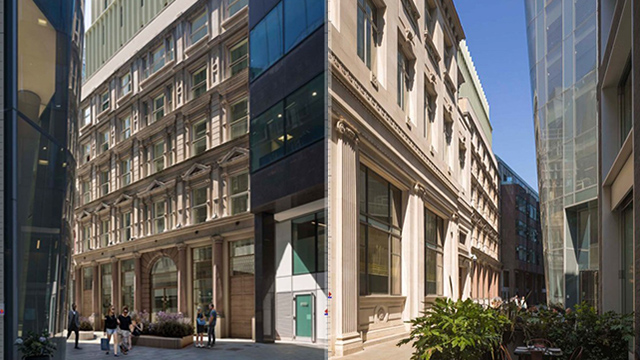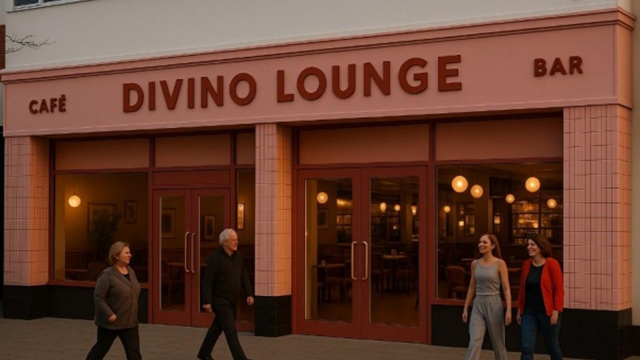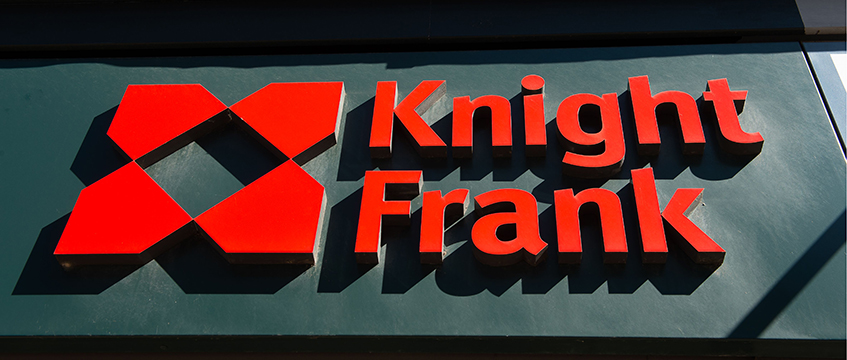Born on the same day, Jonathan Chenery and Duncan Rowe have built a successful business together. But like the founders’ shared history, is Beltane Asset Management’s success just a quirk of fate? Jack Sidders reports. Portraits by Marcus Rose
For such a young company, Beltane Asset Management’s history stretches back a surprisingly long way. The firm was founded in the aftermath of the financial crash in mid-2010, but its origins can be traced to more than three decades earlier. In fact, they can be pinpointed to 1 May 1974, the day when both of its founding members were born.
Jonathan Chenery and Duncan Roe went on to attend the same university to read the same degree, which, in turn, prepared them to pursue the same career in the same city.
Beltane’s name is a nod to this shared past: the word comes from the pagan festival that marked the beginning of May. Today that festival has become associated with anarchy, which is where the parallels end.
In the three-and-a-half years since it was created, the company has sourced the equity to quietly buy nine buildings in the City, with plans to refurbish and redevelop them.
The returns on properties it has sold so far have generally been impressive, and the company is on the cusp of some truly headline-grabbing deals. St Paul’s House, Beltane’s most recently completed and let development, is rumoured to be close to selling at around 4.6%, one of the lowest City yields achieved this cycle.
Estates Gazette spoke to the company’s founders about the ingredients for success in the Square Mile and whether the rapidly changing market conditions that have brought debt-fuelled competitors back into play might show their achievements so far to be a lucky coincidence.
Chenery and Roe both began their careers as agents. Roe spent seven years in the West End with Strutt & Parker and three in the City with Matthews and Goodman before setting off alone (see CV box, page 9).
“I borrowed money left, right and centre and built up a portfolio,” he admits, explaining those riskier experiences that have come to shape Beltane’s conservative approach to the market. “It was a different time, but it gave me an awful lot of experience of borrowing money and the experience of some of those investments going well and some going not so well.
“We were taking advantage of a market that was easy to borrow in and riding on that bandwagon, frankly.”
Meanwhile, Chenery went from Wright Oliphant to Gerald Eve where, as part of a team of three, he helped establish the firm’s City office. Six years later, he too went client-side, joining a private family office in Mayfair in 2004.
Building and selling a central London portfolio eventually led to a move to Portugal and high-end residential venture with Rockspring Iberia.
Both men speak relatively freely about these formative experiences in a hubristic market that became addicted to debt on the presumption of ever-rising values. In fact, it’s easy to get the impression this is a well-rehearsed narrative that has served them well in winning the confidence of investors in the business, which include private equity, pension funds and private family offices.
“We both know what it is like to invest our own money and get it back but, more importantly, we know what it is like to invest our own money and never see it again,” says Roe. “That’s important for our financial partners to understand.”
Chenery and Roe kept in touch during the 14 years after they left university and by 2010 they decided it was time to “get back into a re-based central London market”, as Chenery puts it.
In fact, a deal came before the company was formed. A failed bid to buy a £10m office refurbishment opportunity showed them they could source equity if needed, and soon afterwards 9 Cloak Lane, EC4, came on to the market.
Roe says: “We found the deal and then worked out we needed some business cards because we had a meeting coming up. It was on the back of that opportunity that the business was set up.”
At the time, relatively few companies were vying to deploy capital at the smaller end of the City market. In May 2010, newcomer Beltane paid £9.9m for the 30,000 sq ft building with backing from a US private equity firm.
It spent £3m on refurbishment before letting it to a pair of hedge funds, a research company and a US software business, achieving rents in the mid-£50s per sq ft. In July 2012, private clients of UBS paid £18.5m for the property.
The turnaround was achieved against the backdrop of a lacklustre City occupier market, which was struggling against the fallout of the global financial crisis.
The key to the letting success, say the partners, was the scrupulous focus on a high-level finish to the building. “One of the things we wanted to do was to bring an almost residential level of finishes to office buildings,” says Chenery.
“A lot of our occupiers may well live in a £10m or £15m apartment and they don’t want to work in a dump.”
This approach has parallels with another young pair of developers made famous by eye-catching returns on their residential projects. Chenery won’t draw the Candy comparison directly, but Roe is more explicit.
Describing the boutique financial services companies that routinely occupy Beltane developments, he sketches an image of a fund manager whose small operation could boast billions under management. “The guys who run [these firms] know what they like and probably live in a Candy and Candy-type flat and if they are spending loads of time in the office, they want it to be great,” he says.
“So when it comes to snagging, we are beyond anal. When we were launching Cloak Lane, I found John on his hands and knees with baby wipes trying to get the shoe polish out of the floor.”
Cloak Lane has been followed by eight more acquisitions that are in various stages of redevelopment, such as 20 St Mary at Hill, EC3, which has been let to Premier Inn and forward sold to Royal London Asset Management. The refurbishment of 63 Mark Lane, EC3, on behalf of Investec gave rise to the opportunity to buy 71 Queen Victoria Street, EC4, with backing from CBRE Global Investors.
So far this year, Beltane has bought 108 Cannon Street, EC4, and Asia House, EC3, the latter being proof that deals can be done at the bar of the Carlton hotel during MIPIM, at least for those fortunate enough to be offered off-market opportunities by Land Securities.
The Premier Inn deal traded at a yield of 4.75%, netting another fantastic return for Beltane and its investors.
“When we first started doing this, if you were being optimistic, you would expect an exit yield of 5.5-6%,” says Chenery. “The market has moved 100 basis points in the last year, frankly, and the pure reason for that is the weight of capital seeking income, and seeking income in London.”
Beltane has specialised in the smaller lot sizes that tend not to interest the City’s biggest developers.
CV: Jonathan Chenery
Born 1 May 1974
1993-1996 University of the West of England, Bristol,
1996-1998 Wright Oliphant, City office
1998-2005 Gerald Eve, establishes City office
2005–2008 Squarestone Property Investment Managers, investment director, London and Portugal.
2008-2010 Town Park Estates, director
2010 Establishes Beltane
CV Duncan Roe
Born 1 May 1974
1993-1996 University of the West of England, Bristol
1996-1999 Strutt & Parker M4 and M5 corridors
1999-2003 Matthews & Goodman, City investment
2003-2010 Barlcay Investments, MD and equity investor
2003-2010 City Real Estate Acquisition, principal director
2006-2010 Eurocap Asset Managment, managing partner and equity investor
2010 Establishes Beltane
The backing of a handful of separate account investors has ensured they can buy with equity in a market that, until recently, was starved of debt.
“The assets we buy are the sort of buildings that used to be bought by propcos, which don’t really exist any more,” says Chenery. “I probably think our business model is the new incarnation of what a traditional property company used to be.”
But debt is now returning to the small-scale City development market, and with it is increased competition. For Beltane, this raises an important question. Will the company continue to be able to find short-let and vacant office buildings that are ripe for refurbishment and have not yet had their redevelopment potential priced in? Or will it seek to take advantage of newly available leverage to source bigger deals, taking it onto the radar of major rivals such as Stanhope, Delancey or Brookfield?
“As more debt comes into the market, we will inevitably start looking at bigger deals because the same equity cheque relates to a much bigger deal once you inject debt into it,” says Chenery.
Beltane has now raised a small unregulated fund that effectively acts as an investment club. The Cannon Street deal was done through this club and Chenery says this is likely to become more of a focus in years to come.
As to whether they will be able to find the right deals, the duo insist that opportunities still exist if you know where to look. “It is about doing good deals – it doesn’t matter if they are big deals,” says Chenery. “There are a lot of purchasers in London who are driven to buy within certain lot sizes because of external influences, but we are not constrained by any of those.
Roe adds: “Our latest purchase is of the same levels as Cloak Lane. There are a few more entrants into the game, but we have just got to continue buying at a level we have always been buying at.”
The search for these “good deals” is pushing the company to look closely at other London sub-markets, including the West End, Clerkenwell and South Bank. “We are a central London business and circumstances have driven us to focus on the City,” says Chenery. “As conditions change, that won’t always be the case.”
Clerkenwell and Farringdon look expensive, says Roe, but the South Bank and West End sub-markets continue to hold some allure. And it is not just office opportunities that have caught their eye; residential and hotel schemes are now also on the radar.
Roe adds: “Without a doubt it has heated up a bit, but we have already done two deals this year and we are about to sign up on a third. The next one we have under offer is basically West End.”
For a business that prides itself on not being cyclical, instead adding value to create returns, it looks like another one of those ‘lucky’ coincidences that conceals a decidedly shrewd move.











